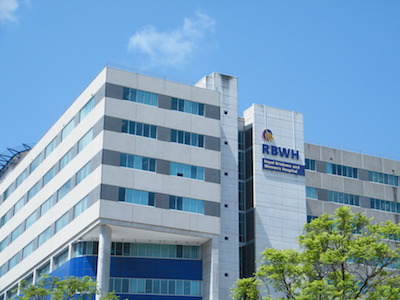Queensland Health has delayed the planned roll-out of its integrated electronic medical record (ieMR) at Metro North and Darling Downs hospital and health services until 2021, with advanced functionality not planned to go live at Cairns HHS until 2022.
It is also rewriting its procurement plan for the long-awaited replacement of the HBCIS patient administration system (PAS), a restricted tender for which was terminated in January.
Queensland Health Minister Steven Miles told a parliamentary hearing in Brisbane late last month that the ieMR had successfully been deployed at the Gold Coast University and Robina hospitals, Ipswich Hospital, Sunshine Coast University Hospital and Nambour Hospital this year, with advanced functionality going live at Townsville Hospital in July.
However, following a review by the Department of Health in response to a Queensland Audit Office (QAO) report into the ieMR, the next 18 months will see a focus on optimisation and benefits realisation for the system, which will delay the planned roll-out of advanced functionality for tranche five – Metro North HHS and Darling Downs HHS – until 2021.
According to a new schedule for the program, phase six will see work begun for major hospitals in Central Queensland, Wide Bay, South West, Central West, North West and Torres and Cape HHSs, and advanced functionality for Cairns Hospital, in 2021 with rollouts commencing in 2022.
“The ieMR optimisation stream of work allows for enhancements to be built into the ieMR system that address specific hospital requirements and clinical lessons learned through the implementation process,” Dr Miles said.
“It is a clinician-led process that allows for building in improvements that reflect each hospital’s unique geography, physical infrastructure and clinical service offering, ensuring the locality and centres of clinical excellence are supported.”
The original plan was to have 27 hospitals on the digital stack by 2020, including Cairns and Metro North, which includes The Prince Charles, Royal Brisbane and Women’s, Caboolture, Redcliffe and Kilcoy.
In an email to Metro North staff, acting CEO Jackie Hanson and chief digital health officer Clair Sullivan said Metro North had been working towards ieMR implementation across the five hospitals by mid-2020 but this would now happen later than expected.
“We recognise that significant work has already gone into preparing Metro North for the implementation,” they said. “The pause will allow time for eHealth to continue working to enhance the digital system and … clinical capabilities of ieMR so that it is optimised and ready for use from day one.”
They said Metro North would use the extended timeline to work on other projects. “We recognise this may cause concern for some staff and will be holding staff forums.”
Acting eHealth Queensland CEO Bruce Linaker told staff that following the announcement, managers would be talking to teams about how the decision may affect eHealth Queensland’s work.
On the PAS project, Dr Miles told parliament that a new procurement pathway was currently being developed and would be considered as part of the 2020 budget.
“The procurement process for the new patient administration system was terminated by the director-general in January this year,” he said.
Queensland Health documents say negotiations are occurring to extend support for the current patient administration system, and foundation work was occurring in relation to the provider directory, integration services and service billing.
Dr Miles said the new pathology information system, the $68.5 million tender for which was won by US firm Sunquest in February last year, will now be rolled out in a phased approach from the end of 2020.





